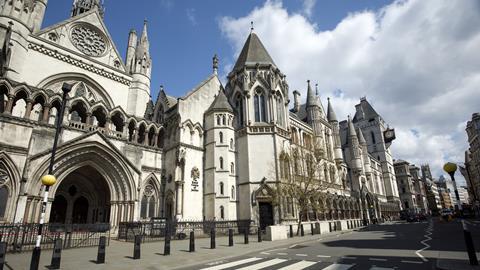The Court of Appeal has rejected an attempt to have an adoption order revoked on welfare grounds, despite all family members supporting the move.
In Re X and Y, Sir Andrew McFarlane, president of the Family Division, said the court did not have jurisdiction to approve the application from the adoptive mother of two teenage siblings to legally end the adoption order.
The application had been supported by the children, now 17 and 16, and the birth mother, who had remained a part of their lives. Both siblings had told the High Court last April that they wished to be ‘unadopted’, but Mr Justice Lieven ruled the court lacked jurisdiction to revoke an adoption on purely welfare grounds.
McFarlane, sitting alongside Lord Justice Peter Jackson and Lord Justice Phillips, accepted that the children would be ‘profoundly upset’ by the outcome and admitted that if the court had a welfare-based jurisdiction then it would probably have been different.
But he added: ‘These are matters of fundamental principle with respect to adoption. Adoption orders are transformative, have a peculiar finality and are intended to be irreversible, lasting throughout life, as if the child had been born to the adopter. That high degree of permanence, from which the benefits to the child of long-term security and stability should flow, is the unique feature that marks adoption out from all other orders made for children; it is, at its core, what adoption is all about.’
The judges agreed with the submission of the secretary of state for education that it would ‘gravely damage the lifelong commitment of adopters to their adoptive children’ if there were a possibility of the finality of the adoption order being challenged.
The children were placed with their adoptive mother in 2012 when they were five and four respectively. They asked for continued contact with their birth mother, who went on to have two more children who she has cared for throughout their lives.
The adoptive mother had allowed the birth mother and her youngster children to move in with her during lockdown, and subsequently the adopted children left home to live with their birth mother.
The court heard that parliament had made no provision for the revocation of an adoption order, other than following a sole adoptive parent marrying or the making of a subsequent adoption order.
McFarlane said the court was very conscious that this was by no means an isolated case and that there will be other, possibly many other, adoptive relationships which have broken down. Those people would welcome the chance to apply for revocation in the court, he accepted.
‘But, for the reasons we have given, both the law, as passed by parliament and as previously interpreted by this court, and the policy underlying the statutory adoption regime have inevitably led us to hold as we have done,’ he added.



























